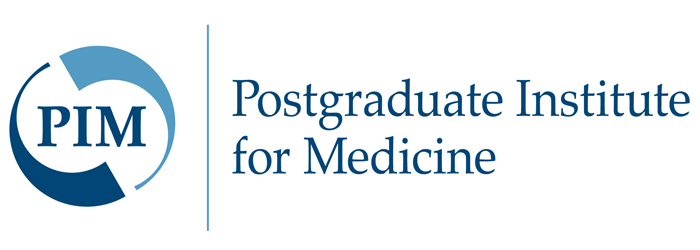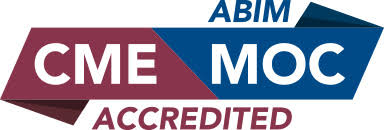Achieving Treat-to-Target Goals in Systemic Lupus Erythematosus
Jointly provided by

![]()
This activity is supported by an independent educational grant from GlaxoSmithKline.
Release date: 1/8/2021
Expiration date: 1/8/2022
Estimated time to complete: 1.0 hour
Overview
Because of its varied, changing, and sometimes subtle manifestations, systemic lupus erythematosus (SLE) is notably difficult to manage. It is thus essential to ensure that, once an SLE diagnosis has been established, disease activity measures are applied consistently and uniformly. Because SLE is associated with cumulative permanent organ damage that leads to significant morbidity and mortality, treatment should aim to prevent organ damage and to optimize health-related quality of life by controlling disease activity and minimizing comorbidities and drug toxicity.
In this activity, learners will meet two patients: Amy, a new mother with a history of SLE who has been experiencing foot and ankle swelling, and Maria, a teenage girl with left knee swelling. The activity examines strategies for monitoring SLE disease activity and damage, as well as guideline-driven recommendations for treating SLE and managing treatment side effects to optimize patient outcomes.
Faculty
Joan T. Merrill, MD—Program Chair
Director of Clinical Projects, Arthritis & Clinical Immunology Program
Oklahoma Medical Research Foundation (OMRF)
OMRF Professor of Medicine
University of Oklahoma Health Sciences Center
Oklahoma City, Oklahoma
Anca D. Askanase, MD, MPH
Director, Columbia University Lupus Center
Associate Professor of Medicine, Division of Rheumatology
Columbia University College of Physicians & Surgeons
New York, New York
Michelle A. Petri, MD, MPH
Professor of Medicine
Johns Hopkins University School of Medicine
Baltimore, Maryland
Target Audience
This activity is intended for rheumatologists and other health care providers involved in the care of patients with SLE.
Learning Objectives
Upon completion of this activity, participants should be better able to:
- Define SLE disease activity and utilize disease activity indices to recognize exacerbations (flares)
- Employ regular long-term monitoring and review and/or adjust therapy for patients who have SLE, as needed
- Integrate understanding of damage associated with SLE into clinical decision-making
- Describe the relationship between corticosteroids, disease activity, and organ damage
- Discuss the current understanding of SLE pathophysiology and use this knowledge to compare and select treatments
Accreditation and Credit Designation
 In support of improving patient care, this activity has been planned and implemented by the Postgraduate Institute for Medicine and RedMedEd. Postgraduate Institute for Medicine is jointly accredited by the Accreditation Council for Continuing Medical Education (ACCME), the Accreditation Council for Pharmacy Education (ACPE), and the American Nurses Credentialing Center (ANCC), to provide continuing education for the health care team.
In support of improving patient care, this activity has been planned and implemented by the Postgraduate Institute for Medicine and RedMedEd. Postgraduate Institute for Medicine is jointly accredited by the Accreditation Council for Continuing Medical Education (ACCME), the Accreditation Council for Pharmacy Education (ACPE), and the American Nurses Credentialing Center (ANCC), to provide continuing education for the health care team.
The Postgraduate Institute for Medicine designates this enduring material for a maximum of 1.0 AMA PRA Category 1 Credit™. Physicians should claim only the credit commensurate with the extent of their participation in the activity.
American Board of Internal Medicine (ABIM) Maintenance of Certification (MOC)  Successful completion of this CME activity, which includes participation in the evaluation component, enables the participant to earn up to 1.0 ABIM Maintenance of Certification Part 2 credit MOC points in the American Board of Internal Medicine’s (ABIM) Maintenance of Certification (MOC) program.
Successful completion of this CME activity, which includes participation in the evaluation component, enables the participant to earn up to 1.0 ABIM Maintenance of Certification Part 2 credit MOC points in the American Board of Internal Medicine’s (ABIM) Maintenance of Certification (MOC) program.
Additional information will be collected from those claiming MOC credit, including but not necessarily limited to their ABIM registration number and birthdate (mm/dd). MOC participant data will be uploaded to the ACCME PARS system by PIM, which will automatically transmit the data to ABIM.
Disclosure
Postgraduate Institute for Medicine requires instructors, planners, managers, and other individuals who are in a position to control the content of this activity to disclose any real or apparent conflict of interest (COI) they may have as related to the content of this activity. All identified COI are thoroughly vetted and resolved according to Postgraduate Institute for Medicine policy. Postgraduate Institute for Medicine is committed to providing its learners with high-quality activities and related materials that promote improvements or quality in health care and not a specific proprietary business interest of a commercial interest.
Faculty
Anca D. Askanase, MD, MPH, has disclosed the following relevant financial relationships:
Consulting Fees: AbbVie, AstraZeneca, Bristol Myers Squibb, GlaxoSmithKline, Janssen, Lilly, Mallinckrodt
Fees for Non-CME/CE Services Received Directly From a Commercial Interest: France Foundation
Contracted Research: AstraZeneca, Bristol Myers Squibb, GlaxoSmithKline, Janssen, Lilly, Mallinckrodt
Joan T. Merrill, MD, has disclosed the following relevant financial relationships:
Consulting Fees: AbbVie, Amgen, Anthera, Aurinia, Bristol Myers Squibb, Boston Pharmaceuticals, Celgene/BMS, EMD Serono, Exagen, GlaxoSmithKline, ImmuPharma, Janssen, Lilly, Medimmune/AstraZeneca, Neovacs, Pfizer, RemeGen, UCB
Research: Amgen, Bristol Myers Squibb, Celgene/BMS, EMD Serono, Exagen, Genentech/Roche, GlaxoSmithKline, Lilly, Medimmune/AstraZeneca, Neovacs, Pfizer, UCB, Xencor
Talks: Bristol Myers Squibb, EMD Serono, GlaxoSmithKline, Janssen, Lilly, UCB
Michelle A. Petri, MD, MPH, has disclosed the following relevant financial relationships:
Consulting Fees: AbbVie, Alcon, Amgen, AstraZeneca, Blackrock, Bristol Myers Squibb, Decision Resources, Exagen, Glenmark, GlaxoSmithKline, INOVA, IQVIA, Janssen, Lilly, Merck EMD Serono, Novartis, Sanofi Japan, Thermofisher, UCB
Research: AstraZeneca, Exagen, GlaxoSmithKline, Lilly
PIM
The PIM planners and managers have nothing to disclose.
RedMedEd
Yvette Murley, PhD, Medical Director, has disclosed no relevant financial relationships.
Heather Rafa, Program Manager, has disclosed no relevant financial relationships.
Jonathan S. Simmons, ELS, Senior Managing Editor, has disclosed no relevant financial relationships.
Karen Smith, Creative Director, has disclosed no relevant financial relationships.
Unapproved Product Use
This educational activity may contain discussion of published and/or investigational uses of agents that are not indicated by the US Food & Drug Administration. The planners of this activity do not recommend the use of any agent outside of the labeled indications. The opinions expressed in the educational activity are those of the faculty and do not necessarily represent the views of the planners. Please refer to the official prescribing information for each product for discussion of approved indications, contraindications, and warnings.
Disclaimer
Participants have an implied responsibility to use the newly acquired information to enhance patient outcomes and their own professional development. The information presented in this activity is not meant to serve as a guideline for patient management. Any procedures, medications, or other courses of diagnosis or treatment discussed or suggested in this activity should not be used by clinicians without evaluation of their patient's conditions and possible contraindications and/or dangers in use, review of any applicable manufacturer's product information, and comparison with recommendations of other authorities.
Method of Participation
There are no fees for participating and receiving CME/CE credit for this activity. During the period [release month, day] [year] through [expiration date], [year], participants must read the learning objectives and faculty disclosures and study the educational activity.
If you wish to receive acknowledgment for completing this activity, participants must complete the posttest (achieving a passing grade of 75% or greater) and program evaluation. Certificates can be printed immediately.
Contact Information
For questions regarding CME credit, contact inquiries@pimed.com.
For technical questions related to this activity, please contact RedMedEd at 610.251.6841 or education@redmeded.com.
Hardware/Software Requirements
- Apple iPad, iPad Mini (iOS 11 or higher), iPhones (iOS 11 or higher), and Android phones (4.0.3 or higher) with an Internet connection
- Internet browsers: Chrome, Firefox, Safari
- A computer with an Internet connection
- Internet browsers (PC): Chrome, Firefox, Microsoft Edge, and Internet Explorer 11 or higher.
- Internet browsers (Mac): Chrome, Firefox, and Safari 13 or higher
Privacy
CME credit for this activity is provided by the Postgraduate Institute for Medicine. If you register for CME credit for this educational activity, RedMedEd will forward relevant personally identifiable information to the Postgraduate Institute for Medicine so that records can be maintained concerning any credits issued to you. Aggregated data concerning registrations, posttests, and evaluations may be shared, but RedMedEd will not knowingly share any personally identifiable information. Postgraduate Institute for Medicine or RedMedEd may use the information you provide on this site to contact you about your CME credit or other relevant educational activities. For more information, contact inquiries@pimed.com or education@redmeded.com.
Copyright
© 2020. This CME-certified program is held as copyrighted by the Postgraduate Institute for Medicine and RedMedEd. Through this notice, the Postgraduate Institute for Medicine and RedMedEd grant permission of its use for educational purposes only. These materials may not be used, in whole or in part, for any commercial purposes without prior permission in writing from the copyright owners.